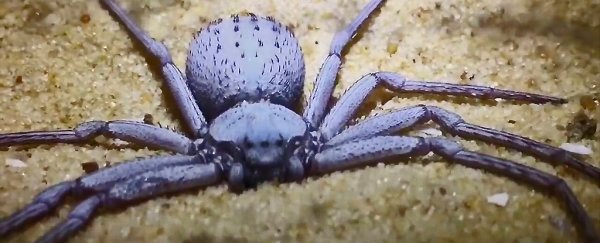One of the world's deadliest spiders is among the thousands of bugs and reptiles that were recently stolen from the Philadelphia Insectarium and Butterfly Pavilion, according to authorities.
Security cameras caught several people leaving the museum on August 22 with 80 to 90 percent of the collection housed in plastic containers, from tarantulas to geckos.
Philadelphia Police believe that the US$40,000 theft was carried out by current and former employees, who intended to resell the 7,000 animals. While police have contacted three suspects, no arrests have been made yet.
Dr. John Cambridge, the chief executive of the insectarium, told The New York Times that he believes "someone recognized an opportunity to remove some creatures" and did it.
While some of the critters have been returned, many still remain missing, including one of the world's most venomous insects, the six-eyed sand spider.
Bites from six-eyed sand spiders are rare in humans but they have been shown to cause dermonecrotic lesions, according to an article in the PLOS Neglected Tropical Diseases journal.
Such lesions could necessitate amputation in serious cases. Bites have also proven lethal in rabbits, the article's authors state. The spiders are native to the dry forests and deserts in Southern Africa, South America and Central America.
It's hard to know just which animals are missing since police say the thieves also took the logs used to keep track of the creatures.
So many bugs and lizards were stolen from the museum that it has had to close its second and third floors until November 3, when they hope to replenish their collection in time to participate in the Philadelphia Oddities Expo.
Dr. Cambridge pointed out that many animals in the collection were confiscated in criminal investigations, and therefore stealing them could be considered tampering with evidence.
While the suspects face the possibility of serious charges, Dr. Cambridge hopes they will be shown mercy.
"They are young, and I really hope that this isn't something that follows them for the rest of their life," Dr. Cambridge said. "Everybody does dumb stuff when they're young."
This article was originally published by Business Insider.
